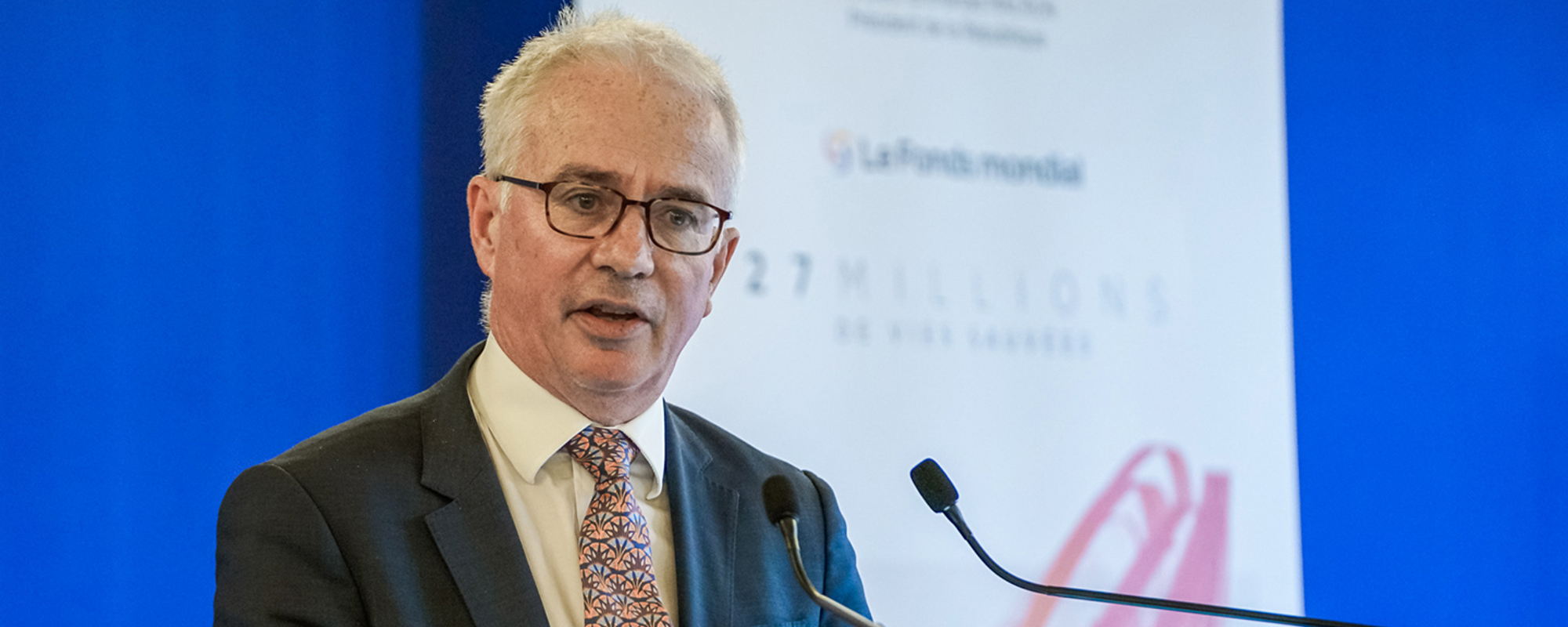

We Must Act Urgently to End HIV, TB and Malaria
We are making extraordinary progress in the fight against HIV, tuberculosis and malaria, but far too many people are still dying from these diseases, which are fully preventable. To end these epidemics, we need increased investment, accelerated innovation and a relentless focus on impact.
First, the good news. Today, a report shows that the Global Fund partnership has saved 27 million lives, while building resilient and sustainable systems of health. The report explains how we have reduced deaths and infection rates, and demonstrates the catalytic power of international funding when invested in smart, effective programs.
These results build on progress over the past decade. Deaths from AIDS have been cut in half since 2005. New drugs for TB have significantly improved treatment outcomes, even for drug-resistant TB. The combination of mosquito nets treated with insecticide, and improved diagnostics and treatment have radically reduced the impact of malaria.
But it isn’t enough. Despite our progress, millions of deaths from infectious diseases cause terrible damage to families and communities, as well as a significant cost to societies. Global HIV infection rates are not dropping fast enough, and are still extremely high among some key populations, including adolescent girls and young women. While we are making progress on diagnosis, treatment and adherence, we need to do more to turn off the tap of new infections.
TB still kills 1.6 million people a year, more than any other infectious disease. To end the epidemic, we have to get many more cases diagnosed and treated. We also need to get better at identifying and treating the drug-resistant forms of the disease that pose such a terrifying threat to global health security. The United Nations General Assembly High-Level Meeting on TB later this month is a unique opportunity for the world to decisively change that.
It is also alarming that the number of malaria cases is now rising, after declining for more than 10 years in row. A significant number of countries are on track to eliminate malaria – such as Paraguay, which celebrated certification as malaria-free earlier this year. But increased insecticide and drug resistance, environmental factors, funding shortfalls and demographics pose severe challenges in the highest-burden countries.
To meet the Sustainable Development Goal of ending the epidemics by 2030, we must act with urgency to surmount these challenges. The key is to reinvigorate the political commitment to mobilize more funding, international and domestic. We must constantly refine our approaches – leveraging innovation more effectively, making our programs more people-centered, systemic and sustainable, and targeting our interventions through data-driven insights. We must renew our determination to address the gender and human rights barriers that fuel the epidemics. And we must recognize that the fight to end epidemics is an integral part of the journey toward universal health coverage, a fundamental building block of global health security and a crucial element of the overall sustainable development agenda.
We have in our sights, but not yet firmly in our grasp, the prospect of freeing communities from the burden of AIDS, TB and malaria. It is hard to exaggerate what an extraordinary achievement this will be, and what impact it will have on lives saved, on community well-being, and on overall social and economic development. To conquer AIDS, a disease that only appeared some 30 years ago, that has killed over 35 million people, and for which we still do not have a vaccine or cure; to beat TB, the infectious disease killing most people now; to eliminate malaria, the pathogen that over the centuries has probably killed more people than any other – that will be truly historic.







